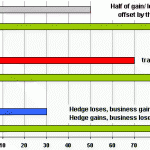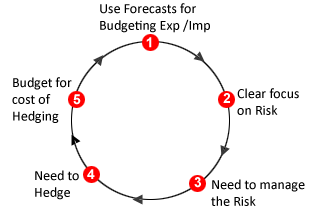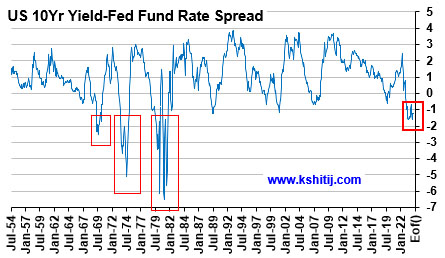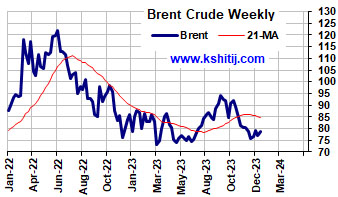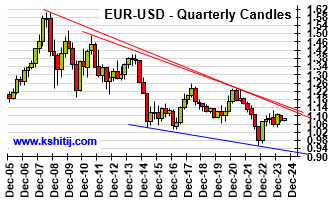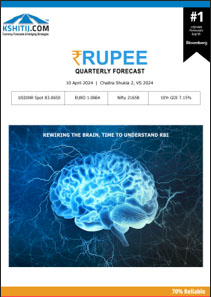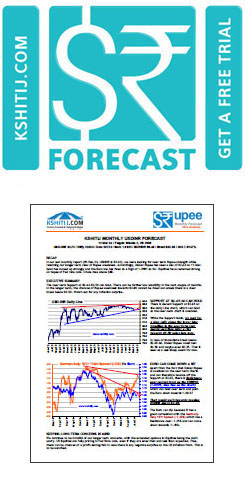Forex Is your business
Aug, 30, 2012 By Vikram Murarka 0 comments

YOUR BOSS NEEDS TO SEE THIS
I would be a rich man if I had a Rupee for every time I have heard the phrase "Forex is not my business" from corporates with forex exposures. Please show this article to your boss, your CFO, your Chairman/ Managing Director; please show it to your Board. If you yourself are the CFO/ CMD/ or a member of the Board, please read this article twice over. If your company exports or imports anything, then forex is your business. You could be exporting software, soya meal or pharmaceuticals. You could be importing coal, oilseeds, machines or chemicals. You could be importing rough diamonds and exporting polished diamonds. In all cases, forex IS your business.Anything that impacts your business is your business.
Unless you are a cash rich company, you would be taking loans from banks. You are not a banker, yet you constantly look for ways to reduce your borrowing costs. Why? Infosys Ltd. exports software. It is not in the education business. Yet, it conducts training for hundreds of technical graduates it hires every year, as a part of its normal activities. Why? The venerable Godrej Group has entered the residential real estate business only recently. Yet, it has been providing housing to its employees at Vikhroli in Mumbai for a very long time. Why? There are only a handful of power generation companies in India. Yet, many large manufacturers in India run captive power plants. Why? More than 90% of companies are not in the business of policing, but every company either employs security guards, or outsources the function to a security agency. Why? The point is any variable that critically impacts your business, is your business. You may not like it, you may feel it is an imposition on you; you may even want to outsource the function to an external service provider. But, ask Maruti. Security is very much a part of its business. Similarly, if you are into exports or imports, forex is very much your business.An Exporter is Long Dollars; an Importer is Short Dollars
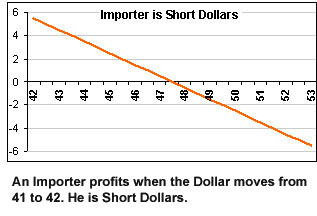 |
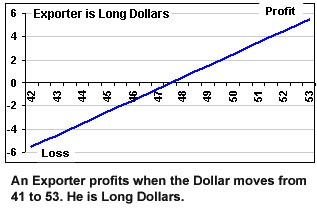 |
Recognise. Commit. You will succeed.
Saying "forex is not my business" is a defeatist attitude. It is not going to make for success in forex risk management. Indians are acknowledged as good managers worldwide. Can they not succeed at forex hedging? Of course, they can. There are some very good forex risk managers in some of the companies we have met. They know how to do the job well. If you yourself are the Promoter/ CEO, are managing the forex risk and have been following the markets for a long time, you are most likely already on top of the markets. Why then do so many companies report large forex losses? It is because there is a lack of clarity on the key issues regarding forex risk management and hence a lack of commitment to it at the highest levels. It's only human. I myself will lose interest in an endeavour if I find that nothing tends to work on an ongoing basis in the long run. I try this, I try that, but nothing seems to work That is why, my last article highlighted the "Drawbacks of Common Hedging Methods". So, what is the way out? If you recognize that forex risk management is an essential part of the company's business and you commit yourself to it by sanctioning a hedge cost budget, you will be well on your way to hedging success. Our experience, and our work on the KSHITIJ Hedging Method, tells us that there is scope to generate forex benefits - whether profits on exporters or savings on imports - to the tune of 1% of the exposure. Try it. It's worth it. You can do it. Or ask us how to do it. Give us a call. We'll be glad to help.Array
In our last report (23-Feb-24, US10Yr @ 4.25%), we had laid out our near term view (that the ongoing rise in the US10Yr may/ may not extend up to 4.5%), our medium term view (that the US10Yr can still fall to 3.5%) and our long term view of a rise towards 5.0% and higher going into 2025. …. Read More
After breaking above the earlier range of $70-85, Brent has moved up higher. Will it sustain and break above $90? Or will it fall back to $80/70? … Read More
Euro could not move above 1.0981 in March and has been trading well below 1.10 post the surprise rate cut by SNB last month. Will Euro continue to trade below 1.10? Or can it remain stable for a while and show a sharp breakout above 1.10? ……. Read More
Our April ’24 Quarterly Dollar-Rupee Forecast is now available. To order a PAID copy, please click here and take a trial of our service.
Our March ’24 Monthly Dollar-Rupee Forecast is now available. To order a PAID copy, please click here and take a trial of our service.
- Kshitij Consultancy Services
- Email: info@kshitij.com
- Ph: 00-91-33-24892010
- Mobile: +91 9073942877


